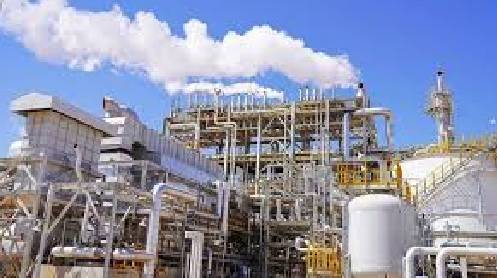ISLAMABAD: The Special Investment Facilitation Council (SIFC) endorsed refineries’ demands on Thursday, backing the withdrawal of budgetary measures that threaten the closure of refineries and jeopardize a $6 billion plant upgrade program.
In a high-level meeting attended by refinery representatives and officials from the Petroleum Division, Ministry of Finance, and Federal Board of Revenue (FBR), executives highlighted the negative impacts of sales tax exemptions for petroleum products. This exemption prevents refineries from claiming significant input tax refunds on purchases and services. Additionally, a 2% customs duty on imported equipment further inflates project costs.
Executives stressed that the sales tax exemption decision would deprive refineries of tax refunds, adversely affecting feasibility studies and increasing upgrade project costs by 20%. The Petroleum Division supports reversing these measures to ensure refineries can continue operations and modernize their plants.
The meeting revealed that the International Monetary Fund (IMF) had urged the government to halt refunds, leading the FBR to offer sales tax exemptions to avoid refund claims.
Refineries have been pressing the government for urgent resolution of these issues and the successful implementation of a new refinery policy, developed over years of effort. All refineries need to sign supplemental agreements with the Oil and Gas Regulatory Authority (Ogra) before the policy can be implemented. The government recently extended the deadline for signing agreements by six months.
Meeting participants noted that new budgetary measures would hinder refineries from finalizing these agreements. The Oil Companies Advisory Council (OCAC) welcomed the six-month extension but expressed concern that budget measures would impede efforts to upgrade refineries for producing environmentally friendly fuels.
Before the FY25 budget, three refineries—Attock Refinery Limited, National Refinery Limited, and Pakistan Refinery Limited—agreed to plant upgrade deals with Ogra, committing to a $3 billion investment. Pak Arab Refinery (Parco) and Cnergyico PK sought more time, leading to the six-month extension.
Refineries had earlier alerted the government to a significant amendment proposed in the Finance Bill 2024, exempting motor spirit, high-speed diesel, kerosene oil, and light diesel oil from sales tax. This change would prevent refineries from claiming refunds on approximately 70% of input tax paid, negatively impacting their financial results as regulated sale prices prevent passing costs to customers. The proposal’s cumulative negative impact could make refinery operations unsustainable.
The government announced the Pakistan Refining Policy for Up-gradation of Existing/Brownfield Refineries 2023, offering incentives for significant investment within specified timelines. Refineries are undertaking $4.5 billion worth of upgrade and expansion projects, expected to boost the economy through import substitution and job creation. However, the sales tax exemption will substantially increase project costs, potentially rendering them unviable and depriving the country of $4.5 billion in investment.
Story by Zafar Bhutta







